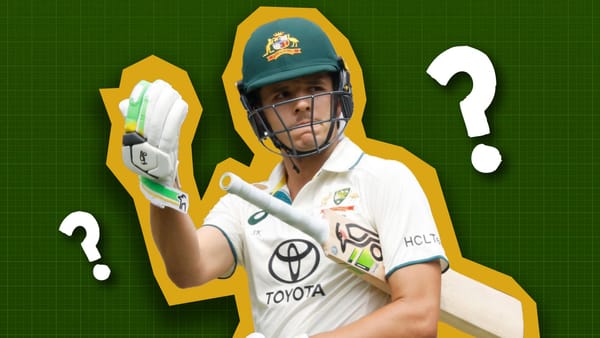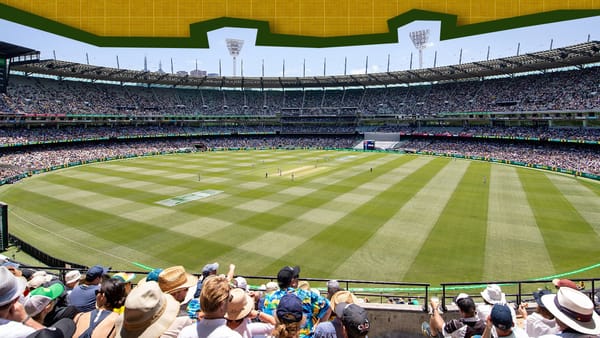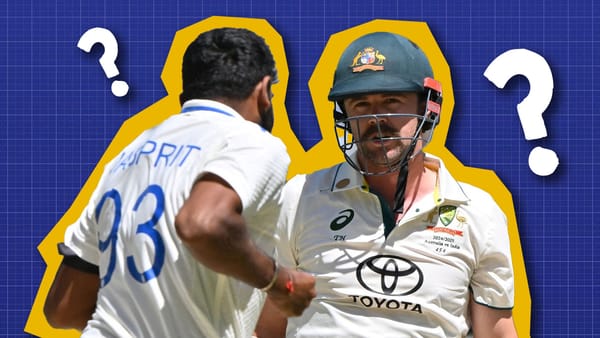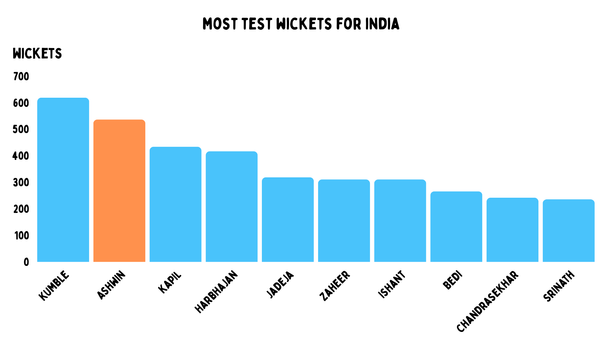The history of race in cricket
Season two of Double Century has now been released.
At the beginning of season two of Double century, I was thinking I'd so a short miniseries on Basil D'Oliveira. Someone, I didn't think I could do justice to in a single episode.
This has been a brilliant, illuminating season. Among @ajarrodkimber 's very best work.
— hypocaust (@_hypocaust) 4:52 PM ∙ Nov 13, 2020
But while I started working on that, the entire world had changed. Black lives matter changed professional sports, and I began to think more about some other stories that lead into Basil's story. Basil's tale is the most well known, but race in cricket has always been there. We had non-white players starring for openly racist countries in the 1800s before the modern Olympics had started. We have an international sport that had to grapple with issues that others never even dreamed of.
So this season is really about race in cricket, and while Basil is perhaps the main part of this story, there are many other things brought in.
But here is a story I didn't tell. When Jason Gillespie played for Australia, he was thought to be the first indigenous Australian player. Later Dan Christian, Ashleigh Gardner, Darcy Short and Scott Boland would play as well. But Gillespie was not the first indigenous Australian to play for Australia, that was Faith Thomas. The tearaway quick who played a Test in 1958. She bowled off six steps, learned to be quick chucking rocks at Galahs, and for years, she wasn't even mentioned. This season is for those we found about late, and the ones we never heard of.
This series wasn't supposed to cover all racism in cricket, that would be a five day podcast. What I wanted to look at some of the bigger moments, the weirdness of racism in cricket. How cricket could be progressive and conservative at the time. And tell some of the stories of those who were overlooked and forgotten.
The first episode focuses more on Krom Hendricks and Charlie Llewellyn than D'Oliveira. One of these players was lucky, the other was not. But their stories should be known.
Then we looked more at what D'Oliveira had to do to make it, wait and prove himself. From being ignored in South Africa, to having to prove himself in England, and even move counties to prove himself again. It's still amazing to me how close we were to him never making it.

South Africa gets a lot of attention in this topic, and they are certainly the major nation in this podcast series. But I did want to look beyond just them. There were race issues in early cricket all over the place, and I wanted to show that as best I could. From the treatment of indigenous players in Australia, through to the incredible nature of the West Indies playing cricket, but with the use of white captains. And also through to incidents in the last 50 years, and also the language of the game itself.
And finally the series gets back to D'Oliveira. One thing I had always wanted to do was look at that series without looking at the politics and whispers behind the scenes. Basically, I tried to Moneyball D'Oliveira situation. We now can use the data better, to really delve into the cricket numbers and see what really happened. And if I can't use all that T20 analysis stuff to look at 50-year olf Test stories, what is it good for.
I realise that for many people, cricket history is not that important to them. But cricket is such a messy international sport, that it tells us a lot about the world we live in. And these men had stories worth telling, and I am just lucky enough to be in a situation where I could share them.
Here is a link to my podcast Double Century, you can find five episodes of season two there. It is also on any podcast platform.
Huge thanks to Nick McCorriston who produced the series. Our fact-checkers were Abhishek Mukherjee and Bertie Moores. The Gwijo squad allowed us to use of their singing for this series. Toby Marriott provided some of those recordings. And thanks to talkSPORT cricket and Barry Wilkinson for their help.




